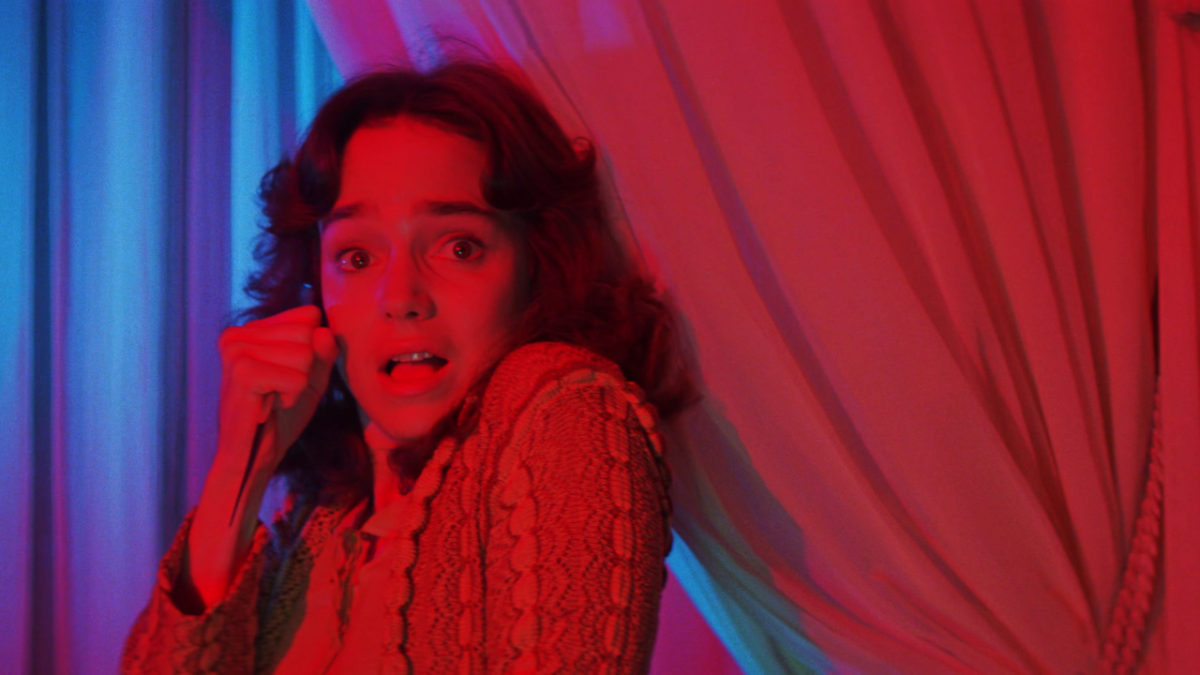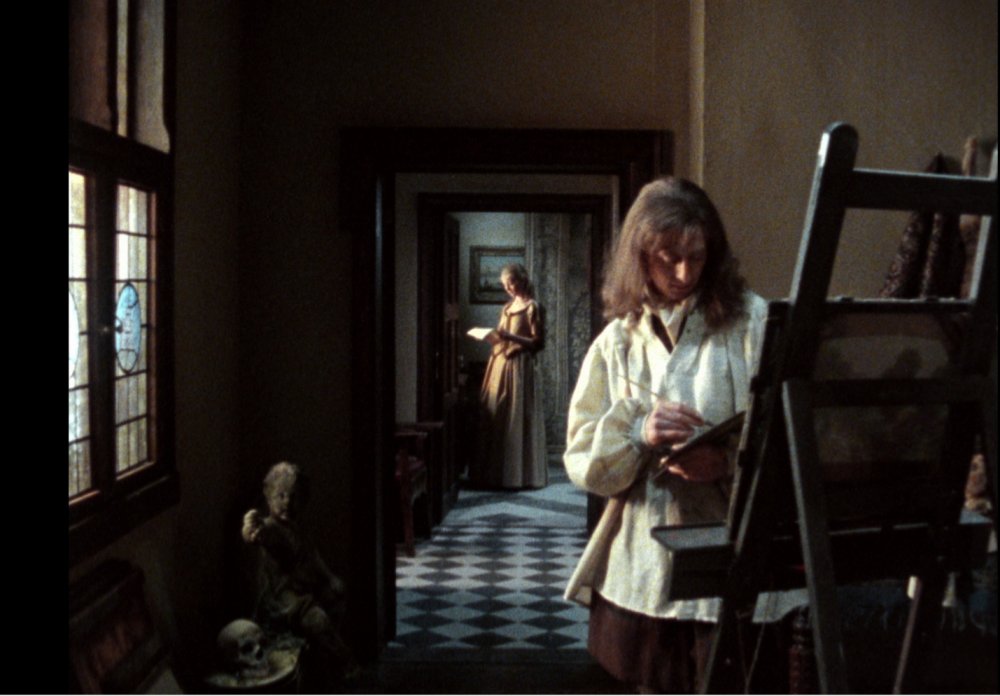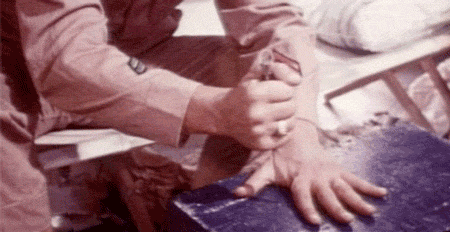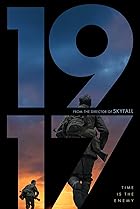So I've been in a weird dead zone the last week or so. I'm primed to write the last part of my PhD thesis but I also have to move to a new room in the place where I'm staying this weekend. I've opted not to start writing because I don't want to lose my momentum once I get going. That means I've been doing nothing but watching the clock waiting until I can move. Once I move, I'm going to go on a writing spree and probably not post in here for a week or two. I'll still be watching a movie or two a day, but I won't be logging them in here. Needless to say, I'll have a huge mega post once I'm done writing, but until then, here's a mini mega post to get my movie logging up to date.
@Caveat,
Ricky, and
ufcfan: I'm going to start with
Nocturnal Animals because that's BY FAR the best movie I've seen of the current batch of movies I've watched. I'll admit, that opening credits sequence was fucked up and gross; I think anyone who utters the phrase "fat shaming" should be forced to watch that disgusting sequence on a loop Ludovico style.
But that wasn't going to dissuade me from watching. Funny enough, I mentioned how I'd been intrigued by that film, but that was just from the cast and the very basic plot of a woman reading a novel by her ex. If I would've known the movie spends a huge chunk of time in
Straw Dogs land, I would've been even more pumped. I thought the conceit was brilliant and executed superbly. I did end up with a few complaints. First, I thought the main bad guy could've been creepier/more sinister instead of just being a jackass. Not saying he needed to be Hannibal Lecter or anything, but I think the film would've benefited from having its villain be more than a backwoods doofus who takes his shits on his porch. Second, I thought there could've been more of a relationship between Gyllenhaal and Shannon. Initially (probably because
Straw Dogs was in my head), I thought Shannon was going to be a typical asshole cop not giving a shit about this loser who didn't fight to protect his family (in that first car ride, Shannon's basically emasculating him and conveying his complete lack of respect for Gyllenhaal) which was going to force Gyllenhaal to tap into some rage and go on a Dustin Hoffman-style revenge rampage. Instead, all of a sudden Shannon turns on a dime and becomes best friends with and avenging angel for a guy he was basically making fun of and it goes from
Straw Dogs to
Rolling Thunder. I get that Shannon got the cancer diagnosis, but even if you want to keep the movie's beats the same, then that initial car ride should've been written differently and they should've started off with something more like pity and sympathy from Shannon instead of disdain. The way it started made where it went implausible and contrived.
Still, those aren't so much complaints about what parts sucked. They're more complaints about what could've made the movie even better. I don't really have any true complaints. I was pissed when the movie ended with Gyllenhaal standing her up, but that was more about me wanting to see Gyllenhaal. I thought about it for a while and I ended up really liking that decision. It worked both for Gyllenhaal's character and for the story.
What'd you guys think?
ufcfan, you mentioned the film having "some utterly shitty aspects to it" that "aggravated [you] at points throughout." Care to elaborate? And
@moreorless87, I don't know if I'd go so far as to say that the film "denounces" Amy Adams' character. I think
Gyllenhaal's character definitely denounces her - he'd already told her when they were together that they were perfect for each other but that she was just scared and was trying to push him away/run away to avoid having to work on herself (and fuck me did that hit home), and by the end of the movie, when he stands her up (assuming that's what happened), he basically confirms his strength (what she accurately characterized in conversation with her mother as "a different kind of strength") while at the same time demonstrating her weakness. That's still not what I'd call denouncing her character, though; it still leaves the open the possibility, after having acknowledged her weakness and her character flaws, of Adams finally committing to change and growth (of course, it also leaves open the possibility of her paying the bill, going home, waiting for her cheating husband to come home, and slipping right back into her miserable routine).
After
Nocturnal Animals, I decided to have a little Gyllenhaal marathon. I next watched
Enemy. The plot sounded awesome but unfortunately the movie wasn't very good. It definitely gets ambition points, but the relationship between plot and theme was rocky to say the least. It sort of felt like a cross between
Persona and
Eyes Wide Shut with Bergman's bizarre spider motif from
Through a Glass Darkly thrown in for good measure. However, as a psychological thriller, I much preferred
The Broken, which I thought did the unsettling doppelganger thing much better.
Then I watched
Demolition and that was another awesome movie. I preferred
Nocturnal Animals, but
Demolition was a much better performance from Gyllenhaal. And it's just a fun movie. That sounds like a weird description given the plot of the film, but it's fun. Gyllenhaal's character has a great spirit that makes it fun watching him adapt to his new life. And his relationship with Naomi Watts' son was fucking great. The scene with them in the hardware store is hilarious.
Ending my Gyllenhaal marathon, I watched
Life. I was disappointed by how unoriginal it was - they literally add zero new wrinkles to the formula - but they made the formula work very well.
Since
Life had me in space, I decided for no other reason to shift from
Life to
Gravity. I avoided
Gravity when it came out for two reasons: First, because I figured it'd have nothing beyond the space gimmick, and two, because the space gimmick wasn't attractive to me since I figured if I tried to see it in theaters (nevermind IMAX) I'd end up with motion sickness and have to leave or fight my way through an unenjoyable theater experience. Having finally watched it, I can say that I was right on both counts. Even on my computer, I was getting dizzy and nauseous at times. I will say that it was better than I'd expected, but once Clooney's gone, you've pretty much seen all the interesting stuff you're going to see.
The rest of my viewing was very random. I watched
American Sniper. I've never really liked Bradley Cooper in anything, but I thought he did a fantastic job in that role. The movie, though, left A LOT to be desired. It felt like Clint wanted to do it less hagiography and more biography, but he never really struck a good balance between character
information and character
study. I think the drive for "realism" and the documentary-style chronicle of his tours of duty kept Clint from being able to really dive into the character's psychology and tell not the story of a guy in the war but
this character's story. In short, he should've tried to make this film more in the mold of
The Deer Hunter, making the war relatively incidental to the journey of his main character. I also thought the ending was retarded. Another instance of the movie just stopping.
Speaking of movies just stopping,
Black Mass had a very similar problem. It was stuck between a documentary and a character study, only I thought
Black Mass was a worse documentary
and a worse character study compared to
American Sniper. First and foremost, there was no clear sense of what the filmmakers thought about Depp's character, which left me wondering why I was watching (I'm sensing a pattern here as I watch these movies; I'm watching them close to random but I'm noticing the same problems, and they're often at the level of the script). Depp's performance was very strong, from the look and the voice to the subtler element of menace that he did a great job of conveying even in innocuous dialogue sequences. But the movie itself had no real forward propulsion. Compared to something like
Goodfellas, where you're ramping up and find yourself wrapped up in that crazy coke-fueled world, or something like
Casino, where you feel the weight of the impending fall,
Black Mass just went along with what felt like no rhyme or reason. And unlike Scorsese's incredible ability to balance intense character studies and ensembles within single films (
Casino being the best example),
Black Mass had way too many characters floating around they clearly had no idea what to do with, chief among them Joel Edgerton's character, who it felt like they kept forgetting about and then had to scramble to shove back in at random points in the story. Until they decided they were done going along and randomly shoving shit in, at which point they just closed up shop and started putting text on the screen. The ending was basically a Wiki entry. Do filmmakers not know how to end movies anymore?
I also watched
American Assassin. Back in my wannabe Tarantino screenwriter days, I'd actually considered doing a practice adaptation of a Mitch Rapp novel. I always liked the character and the book
Act of Treason was particularly good. Much like Tom Cruise ending up as Jack Reacher, though, the problem with
American Assassin is with the casting of the lead. Cruise simply isn't Jack Reacher; even so, he's still Tom Cruise, so the movies work as Tom Cruise action movies.
American Assassin suffered from having an actor who wasn't the lead character but who also had nothing going for him in general. Very bland, no charisma, just...nothing. Michael Keaton, on the other hand, was fucking phenomenal. If you like him even a little bit, it's worth it to see him in this movie. The torture scene near the end is straight up "let's get nuts" awesomeness.
Then I watched
It. No reason. I just saw it on the list and wanted to watch it. It was better than I was expecting but I still preferred the miniseries. I did get hit with one jump scare, but the movie wasn't genuinely creepy or unsettling. The miniseries, even with its low budget and huge helpings of cheese, actually manages to creep me out even now. The one thing the movie has over the miniseries, though, is the actual friendship between the kids. I thought the friendship dynamic was much better and more enjoyable in the movie. It'll be interesting to see how they handle the next chapter.
After
It, to keep it in the horror family, I watched
Dark Skies. I loved
Felicity, so I've followed Keri Russell's career. I remember always thinking this movie looked like it could be cool but I never got around to it. I finally did and it actually was really cool. Kind of like
Signs meets
Paranormal Activity. And I was pleasantly surprised to see JK Simmons show up as the cynical, beaten-down CT'er.
Lastly, another random watch: I watched
They Came Together.
@Flemmy Stardust, if you haven't seen this, you need to watch it ASAP (BTW, you realize,
Flemmy, that you've become the new
aqua, always getting @'ed but never showing up

). I fucking loved this movie. Better than
Wet Hot American Summer, better than
The Baxter, even better than
Wanderlust IMO. The first half-hour fucking
slays. The cast is insane and the script is riotous. My favorite part is that, while it spoofs romantic comedies, rather than
making fun of the conventions, they're clearly
having fun with the conventions. It's a subtle distinction but it makes for a tremendous difference in tone. It's a fun and funny movie, and unlike
The Baxter, it never loses its steam and is strong right up to the end. The highlight for me, though, is obviously Christopher Meloni struggling at the Halloween party to get out of his Green Lantern costume to take a shit

The QT school is dangerous. Sort of like Bruce Lee and Jeet Kune Do: They make it look easy but it ain't for everybody.
Honestly, my favorite breakdown of the writing process is courtesy of Edgar Allan Poe:
"Nothing is more clear than that every plot worth the name must be elaborated to its
dénouement before anything be attempted with the pen. It is only with the
dénouement constantly in view that we can give a plot its indispensable air of consequence, or causation, by making the incidents, and especially the tone at all points, tend to the development of the intention.”
However you want to go about it, however you want to connect the dots,
that they connect - and to the end (fitting phrase) of conveying an explicit and discernible intent - is what's important. Maybe this is why I'm finding myself so disappointed with so much of what I'm watching. It rarely feels that plots are elaborated to their
dénouement ahead of time, so that I rarely feel that air of consequence and rarely get a sense of a guiding intent.
With this in mind, I guess it's a means/ends issue. I don't have a problem with those ends - like I said, the ending of
Take Shelter is a fucking home run
as a sequence, as the driving home of that moment when the family clicks together - but I do have a problem with the means. His way of doing things isn't appealing to or satisfying for me.
I don't know if this comparison will resonate, but he reminds me a bit of Otto Preminger (
@europe1, you out there? Does this comparison make sense to you?) in that, when he does what he came to do, he just stops caring. The difference is that, when Nichols stops caring, he stops the movie; when Preminger stops caring, he still goes through the motions and brings his films to a resolution. It doesn't always work (
Fallen Angel and
Angel Face come to mind) but when he forces himself to stick it out to the end (
Laura and
Advise & Consent come to mind) he demonstrates the MASSIVE difference it makes when you not only hit your theme but tie it in to a fully-functional story with no loose ends left dangling.
I was home in the States on a break, I had a packed DVR, I tried it, it wasn't doing anything for me, I moved on. Not an ideal viewing, so that's why I didn't just write it off, but for whatever it's worth, it didn't have me hooked from the jump.
Few things are more enjoyable for me than having movies throw my low expectations back in my face

Not budging on
Star Wars. I'd sooner try
Rango for
Sigh.
This may seem like a distinction without a difference, but, for the record, I don't judge a movie's potential by who's starring but I do often decide whether or not to take the time to try a new movie based on who's in it.
The equivocation that I find problematic in
Arrival is discernible here: If the aliens are "simply able" to "transcend" time
with the faculties they possess, then no human being, Louise included, should be capable of their "level of sophistication" in the absence of those faculties. Sort of like those animal studies where scientists can get an ape to understand the concept of death, which is fucking insane...but that's still a far cry from being at our "level of sophistication." Louise being able to understand what they're trying to say, I can buy that, but her actually ascending to their level of sophistication and being able to perceive time just as they can in the evolutionary equivalent of the blink of an eye, that I'm not buying.
This would seem to be another problem: Doesn't she arrive already thinking she has an ex with whom she had a daughter who died? Wasn't she already seeing the future before the aliens even showed up? This would again seem to point up that equivocation: Is it because she possesses the same faculties as the aliens (if so, WTF?) or is it because she is able to grasp the language (if so, WTF with the flashbacks/flash forwards prior to her exposure to the language?)?
I never bothered with the sequel, but the first one didn't strike me as "God-tier choreography." A lot of it felt
overchoreographed in the sense that, while I could appreciate the athleticism and the dance-like synchronization, I wasn't actually sold on it
dramatically and therefore wasn't buying it as a fight scene.
Fine. Off the top of my head, purely in terms of the (hand-to-hand and not weapons-based) choreography, and excluding the Sensei, I'd say that among the best one-against-many fight scenes would have to be Jackie Chan in the parking lot at the beginning of and in the mall at the end of
Police Story (the latter has got to be the GOAT, no?), Donnie Yen in the dojo in
Ip Man, and Tony Jaa in the bone breaking scene in
The Protector, while among the best one-on-one fight scenes would have to be Jackie Chan versus Benny the Jet in
Wheels on Meals (got to be the GOAT, no?), Bruce Lee versus Bob Wall and Chuck Norris in
The Way of the Dragon (Bruce and Chuck is
cinematically the GOAT but in terms of pure choreography I've always thought the short fight with Bob Wall was his best work), and Gina Carano versus Michael Fassbender in
Haywire (best one-on-one fight scene in recent memory).
This is very encouraging. I'll definitely be watching them both.
And I'm the opposite. Clearly, I have problems with the ending of
Arrival, but it's automatically better than the ending of
Midnight Special because at least they offered an explanation. I'd rather you try and fall a little short (or, hell, even
a lot short) than not try and pass the buck to the audience.
Never saw
Shotgun Stories, though I remember having it recommended to me in here along with
Take Shelter way back when the latter came out.
Since it's Scorsese, it was one of the first movies to go on my list anyway.
Wow. Both you and
Ricky think
very highly of that movie.
Ok. FYI, I'm saving the superhero stuff until the end, so it'll be a while before I actually watch it, but I'll throw it in along with all the recent Spiderman movies and the post-Civil War Marvel stuff.















